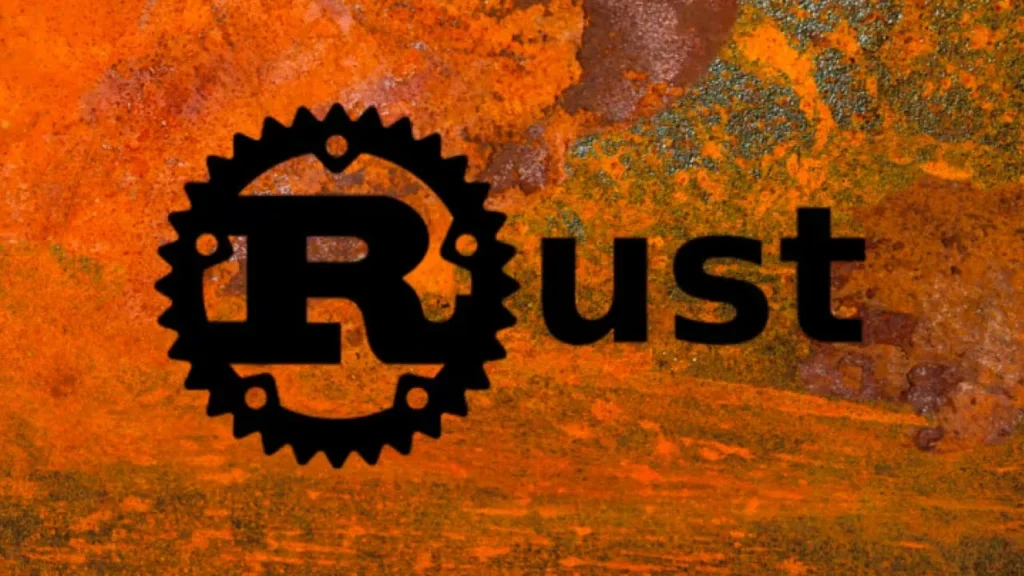Introduction
Rust is a systems programming language celebrated for its blend of safety, performance, and concurrency. It provides low-level control over hardware resources while minimizing common programming pitfalls like memory errors and data races. Since its inception, Rust has won acclaim across industries—from embedded systems and operating systems to web servers and blockchain platforms—due to its forward-thinking features and ever-growing ecosystem.
This article delves into the origins of Rust, the motivations that shaped its design, the milestones in its evolution, and the reasons it has become a prominent choice among modern developers. Along the way, we’ll highlight key concepts, community influences, and the rich tooling that makes Rust an invaluable asset in today’s programming landscape.
The Origins of Rust: Addressing Core Challenges in Systems Programming
The Need for a New Systems Language
In the early 2000s, systems programming was mainly dominated by C and C++. These languages offered the fine-grained control and raw performance required for tasks like operating system kernels, network services, and device drivers. However, with this power came inherent risks:
- Memory Safety Issues: Buffer overflows, dangling pointers, null pointer dereferences, and use-after-free errors were common. Such issues often caused unpredictable behavior, security vulnerabilities, and system crashes.
- Complexity and Scalability: As software systems grew more complex, the difficulty of maintaining codebases and preventing subtle bugs increased.
Developers needed a language that could retain low-level control without sacrificing safety. The aspiration was a systems language that could help prevent the most dangerous classes of memory errors at compile-time, reducing the reliance on runtime checks and garbage collection overhead.

The Creation of Rust
Rust began as a side project by Graydon Hoare in 2006, during his tenure at Mozilla. His vision was bold: marry the performance and control of C/C++ with a compiler-driven safety mechanism that would eliminate entire categories of memory errors. This new language would:
- Guarantee Memory Safety at Compile-Time: Through a unique ownership and borrowing system, Rust tracks variable lifetimes and prevents unauthorized references, data races, and dangling pointers.
- Embrace Concurrency: Rust’s type system and ownership model naturally guide developers toward writing concurrent code without resorting to garbage collection or complex locking mechanisms.
- Maintain High Performance: With zero-cost abstractions, Rust ensures that features like iterators, closures, and pattern matching do not introduce extra runtime overhead.
Mozilla saw Rust’s potential as a language to build the next generation of web technologies—particularly the Servo browser engine—leading them to officially support Rust’s development in 2009. This backing accelerated Rust’s progress, guiding it from a personal experiment to a language built by and for a global community.
Stabilization: The Release of Rust 1.0
By May 2015, Rust had matured enough to release version 1.0, offering developers a stable foundation to rely on. Rust 1.0 introduced core concepts that define Rust’s identity:
- Ownership and Borrowing: Enforced at compile-time, these rules ensure data safety and prevent entire classes of memory bugs.
- Pattern Matching & Algebraic Types: Borrowed conceptually from languages like ML and Haskell, pattern matching and expressive type systems allow for concise, reliable code.
- Strong Typing with Inference: Rust’s static type system, combined with type inference, balances safety and convenience, letting developers write clean code without excessive boilerplate.
- No-Cost Abstractions: High-level constructs like iterators and closures compile down to efficient machine code, ensuring developers don’t pay a performance penalty for code clarity.
Community, Ecosystem, and Tooling: The Growth of Rust
Fostering an Inclusive Community
From the start, Rust’s development was open-source and community-driven. Enthusiasts worldwide contributed code, documentation, libraries, and tutorials. The Rust community prides itself on its welcoming and inclusive culture, supported by a well-defined governance model:
- Core and Subteams: Various teams oversee language design, compiler internals, libraries, infrastructure, and community efforts.
- RFC (Request for Comments) Process: Changes to Rust go through a transparent RFC process, allowing community members to propose, discuss, and refine ideas.
- Code of Conduct: The Rust community enforces a strong code of conduct that promotes respectful collaboration and learning.
This open environment ensures that Rust evolves based on real-world feedback and aligns with developer needs.
The Rise of Cargo and the Crate Ecosystem
A significant catalyst for Rust’s popularity is its tooling—particularly the Cargo package manager. Cargo simplifies common tasks:
- Dependency Management: Easily add, update, and manage external libraries (crates) from crates.io.
- Testing and Building: Run tests, build binaries, and streamline continuous integration with unified commands.
- Documentation Generation: Automatically generate and host documentation for your projects.
With Cargo at the helm, Rust’s ecosystem rapidly expanded. Thousands of community-maintained crates enable developers to tackle domains such as:
- Systems and Embedded Programming: crates like
embedded-halandtokiosupport hardware interfaces and asynchronous I/O. - Web and Networking: Frameworks like
actix-webandRocketfacilitate fast and safe web backends. - Data Science and Machine Learning: Libraries like
Polarsandndarraycater to data processing needs. - Blockchain and Cryptography: Projects like Substrate and Polkadot, built in Rust, highlight its security and reliability advantages in decentralized systems.
Industry Adoption: Rust in Production
Rust’s blend of performance, safety, and reliability has attracted high-profile adopters:
- Mozilla: While Servo (written in Rust) is no longer active, many of its innovations have influenced the Firefox browser and other Mozilla projects.
- Dropbox: Rust powers critical components of its file storage and sync infrastructure, enhancing security and reducing downtime.
- Cloudflare: Known for its vast networking and security services, Cloudflare uses Rust to build performant and secure systems, including its edge computing platform Workers.
- Amazon Web Services (AWS): Rust is increasingly used internally for services and open-source tools, highlighting its trustworthiness at scale.
Beyond these examples, a myriad of startups and enterprises rely on Rust, cementing it as a practical language for production systems.

Rust in the Modern Era: Ongoing Innovations
Key Language Developments
Rust’s journey didn’t end with 1.0. The language and its ecosystem continue to evolve, adding features that make programming more productive, expressive, and efficient:
- Async/Await (Rust 1.39, 2019): Inspired by languages like C# and JavaScript, Rust’s async/await syntax makes asynchronous programming more intuitive. It unlocks the potential for building high-performance servers, network services, and event-driven applications without complicated callback patterns.
- Const Generics (Rust 1.51, 2021): Const generics let you parameterize types by constant values, enabling more flexible and optimized data structures. For example, arrays or matrices of fixed sizes can integrate these generics to provide compile-time checks and performance optimizations.
- Improved Developer Tooling: Advancements like the Rust Analyzer language server offer IDE-like features including code completion, refactoring, and inline hints. These tools help developers understand code quickly and write safer software.
Beyond the Language: The Rust Foundation and Roadmap
In 2021, the formation of the Rust Foundation—a consortium including AWS, Huawei, Google, Microsoft, and Mozilla—signaled a commitment to Rust’s long-term stability and growth. The foundation supports:
- Sustainability: Ensuring Rust’s core infrastructure and governance are well-funded and maintained.
- Stewardship: Upholding Rust’s principles of open development, safety, and community collaboration.
- Growth: Encouraging industry adoption, educational resources, and global outreach.
Rust’s roadmap focuses on refining language ergonomics, improving compile times, enhancing diagnostic messages, and expanding into new domains like GUIs, data science, and more specialized embedded environments.
Popularity and Ongoing Prospects
Consistently voted as one of the most loved programming languages in developer surveys, Rust attracts professionals and hobbyists seeking reliability and clarity. Its steady improvements and thriving community hint at a bright future, with Rust poised to become a cornerstone technology for decades to come.
Practical Guidance: Getting Started and Learning Rust
For newcomers, Rust’s strict compiler checks can seem daunting at first. However, these early constraints pay off by preventing subtle bugs and elevating code quality. To make the most of Rust:
- Install Rust and Cargo: Visit rustup to download the official installer and manage different Rust toolchains (stable, beta, nightly).
- Explore Official Resources:
- The Rust Programming Language Book offers a thorough introduction, from basic syntax to more advanced topics like ownership and concurrency.
- Rust by Example provides hands-on code samples illustrating Rust features.
- Try the Playground: The Rust Playground allows you to experiment with code snippets directly in your browser.
- Join the Community: Participate in forums (like the users forum) or chat on the official Rust Discord server for guidance and help.
Embrace Rust’s compiler hints, learn through experimentation, and soon you’ll write code that’s both safe and fast—benefitting from Rust’s synergy of systems-level control and modern language design.
Conclusion
Rust’s evolution from a side project into a mainstream language is a remarkable narrative of innovation, community collaboration, and practical problem-solving. By addressing long-standing systems programming challenges—particularly memory safety and concurrency—Rust has charted a path to a more secure and maintainable future for low-level software.
Whether you’re building high-performance web servers, reliable embedded systems, tools for data analysis, or next-generation blockchain solutions, Rust provides a powerful foundation. As the language, its ecosystem, and its community continue to grow, Rust remains a beacon of what modern systems programming can achieve: safety without compromise, performance without question, and a vibrant ecosystem ready to solve tomorrow’s problems.
Additional Resources:
- Rust Official Website
- The Rust Programming Language Book
- Rust by Example
- crates.io – Rust Package Registry
- Rust RFCs on GitHub
- Rust Modules, Crates, and Structs with a Simple Restaurant Simulation – Rambod
Tags: Rust history, Rust evolution, memory safety, concurrency, systems programming, software development, modern programming languages
